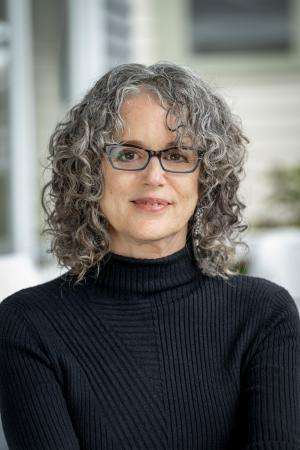The 'white fragility' that prevents conversations about race

Published by Professional Social Work magazine, 22 June, 2022
Not talking about race is how white people in America avoid facing their “complicity” in a culture that is “profoundly anti-Black”, according to a leading racial justice educator.
The message came from Robin DiAngelo, author of the international bestselling book, White Fragility, why it’s so hard for white people to talk about racism.
In a video played during a session at BASW’s conference entitled ‘Whiteness is not skin deep – the social construct of identity’, DiAngelo said colour-blindness helped white people feel comfortable as the beneficiaries of inequality.
“As a result, we are insulated from racial stress and at the same time we come to feel entitled to and deserving of our privilege,” she said.
“Giving how seldom we experience racial discomfort in a society we dominate we haven’t had to build our racial stamina.
“Socialised into a deeply internalised sense of superiority that we are either unaware of or can never admit to ourselves, we become highly fragile in conversations about race.
“We consider a challenge to our racial world view as a challenge to our identity as good moral people.
“Thus, we perceive any attempt to connect us to the system of racism as an unsettling and unfair moral offence.”
Suggesting being white has meaning often triggers defensive responses, including anger, fear, guilt and “withdrawal from the stress inducing situation”, said DiAngelo.
She added: “As a white person I was raised to be racially illiterate. After 20 years of talking day-in-and-day out to white people about racism, I feel very confident to say there is something profoundly anti-Black in this culture.
“We can think of it as state sanctioned organised crime that unleashed discrimination against Africans from the beginning.
“It starts with kidnapping and 300 years of enslavement, rape and brutality and it carries on.”
This legacy contributes to why white people find talking about race traumatic, believes DiAngelo.
“It is a moral trauma, a piece of white fragility of not being able to face our complicity in this system.
“Where historically we have projected our sins onto the Black body: ‘lazy’, ‘shiftless’, ‘criminal’.
“Today we obscure the system of racism that we uphold and we exempt ourselves from its forces.”
Since the murder of Black American George Floyd by a US policeman in 2020, there has been growing awareness of racism and anti-racist initiatives have gained ground within social work.
Brighton and Hove and Essex councils have appointed anti-racism lead practitioners and BASW has appointed an anti-racism lead.
Pamela Shodeinde, a social worker and member of the Black Professionals Symposium set up within BASW, stressed the importance of having “safe spaces” to discuss issues around race in social work.
“It is a safe space for Black social workers to come together and share their experiences.
“It is not about being a victim but finding ways to resolve some of these things.
“Safe spaces shouldn’t only be for Black social workers and people who experience discrimination. It should be also for people who need to develop and understand the issues and are afraid to talk about it.”
I feel very confident to say there is something profoundly anti-Black in this cultureRobin DiAngelo on America
